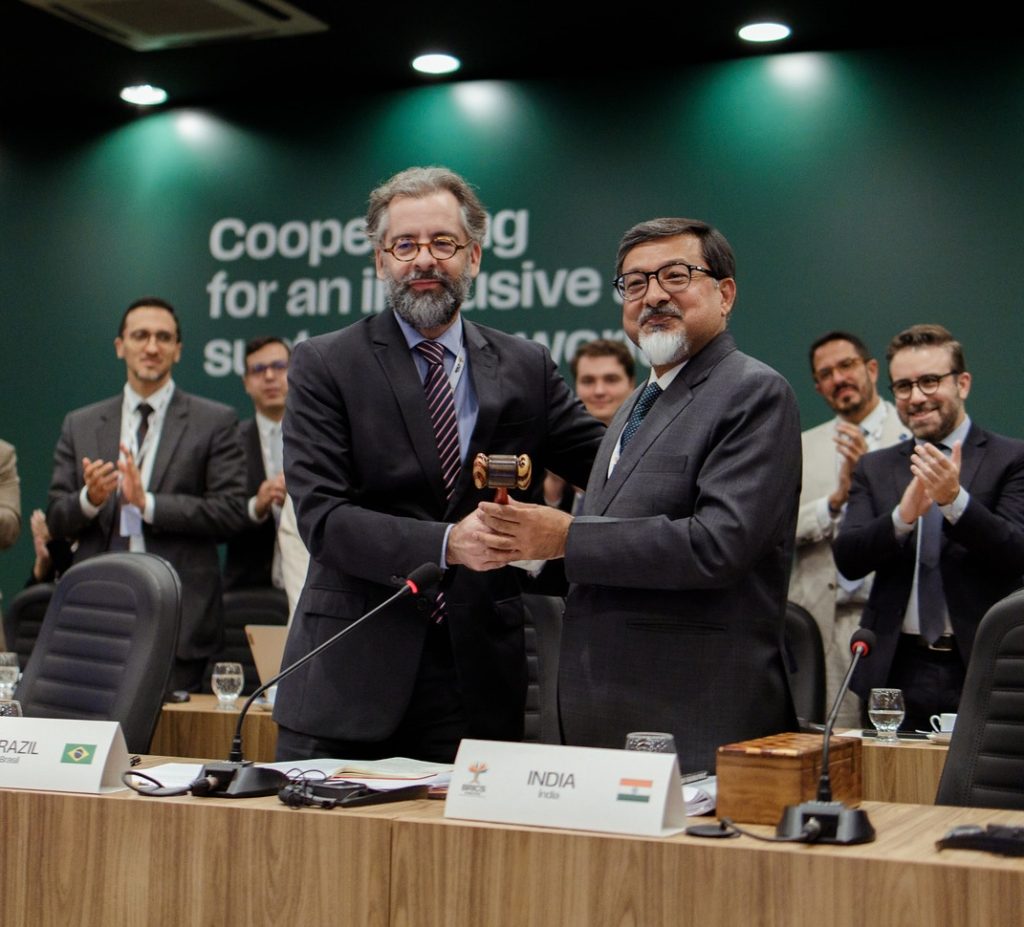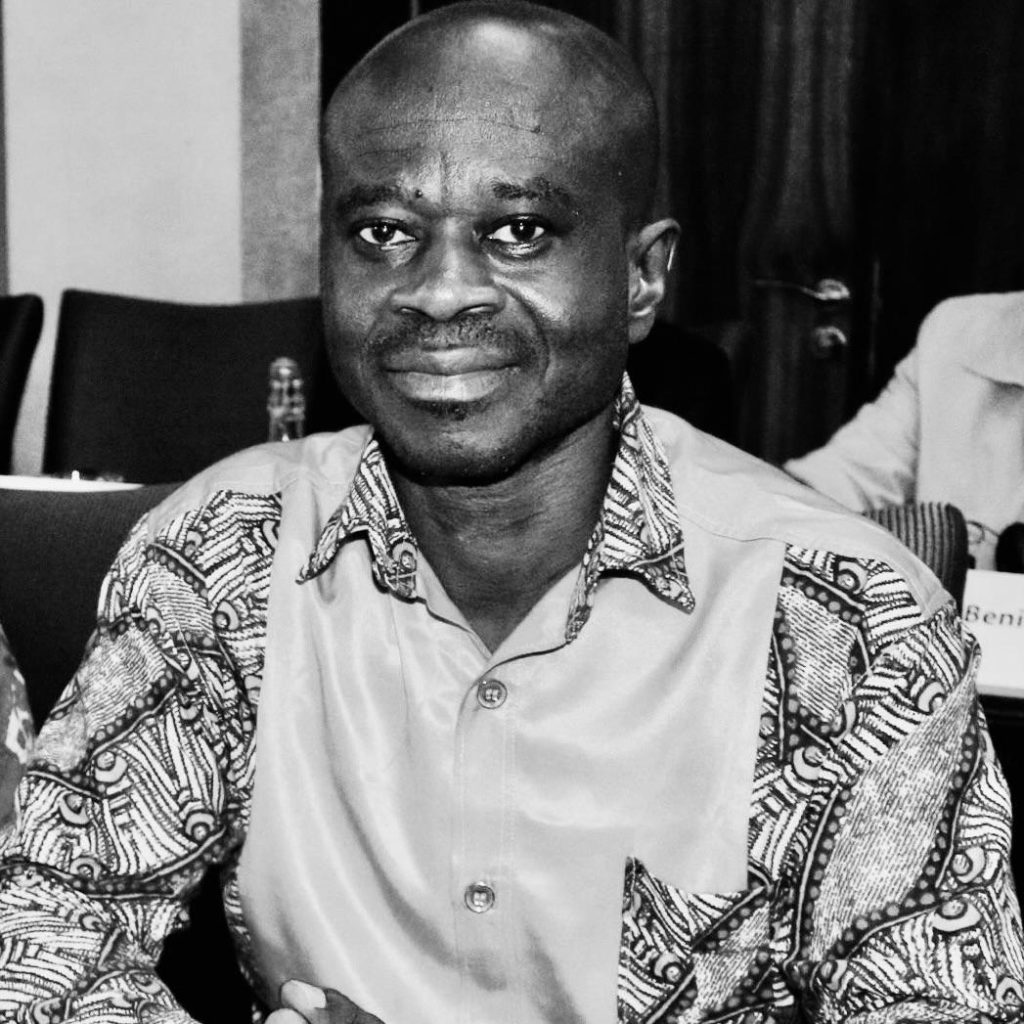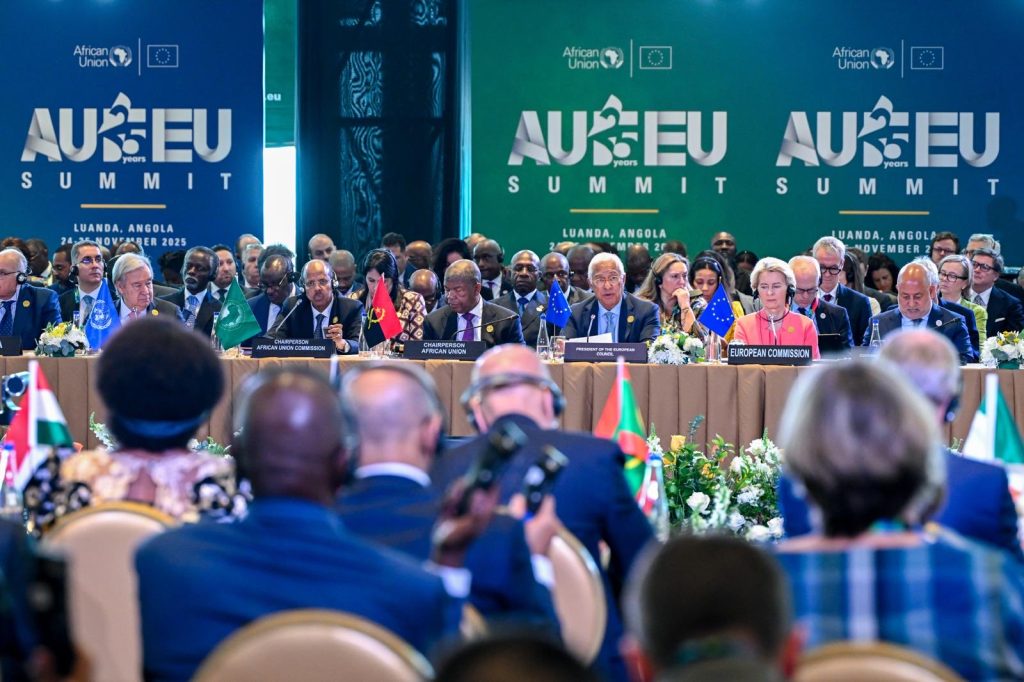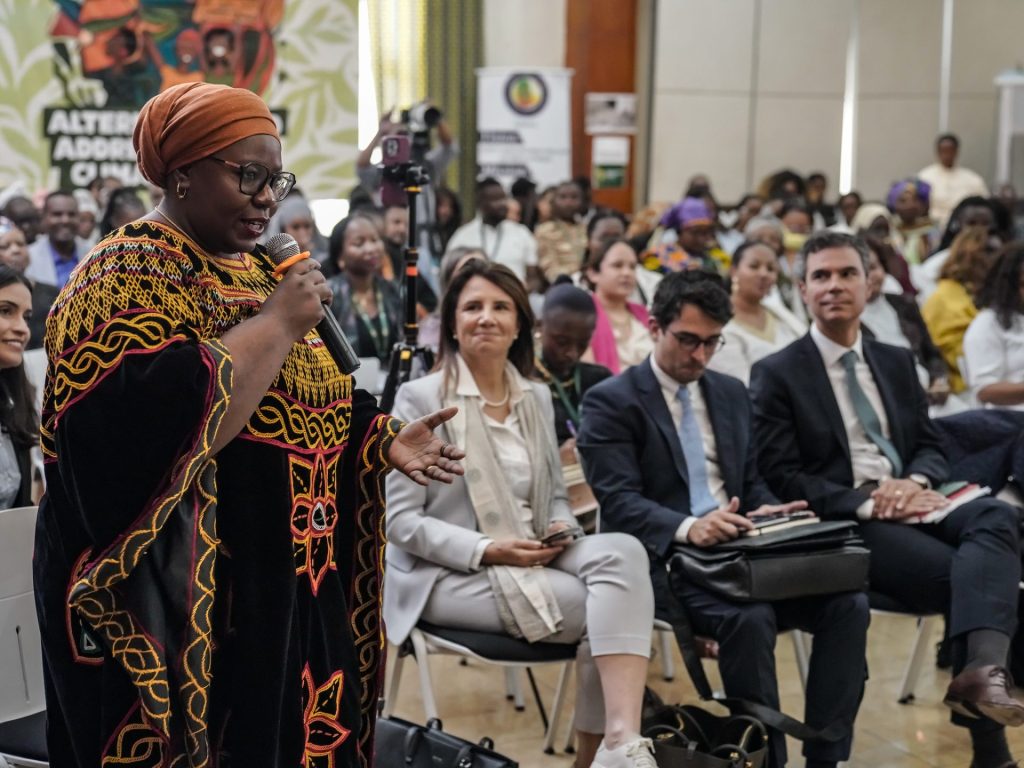Within the first ten days of his presidency, Donald Trump, having returned to the White House, took swift action to reverse course on global climate commitments. His decision to withdraw the United States from the Paris Climate Accord for a second time, sent shockwaves through the international community. Further, Trump made clear that the U.S. would immediately “cease or revoke” all contributions to the UNFCCC. While only a small bilateral contribution, the move is accompanied by a broader rollback of U.S. climate policies, with aggressive expansions in fossil fuel development and a regulatory clampdown on renewable energy projects. At the same time, Trump announced a sweeping halt to all USAID funding, effectively pulling the plug on hundreds of development programmes worldwide. For the many nations reliant on American aid, the implications of these actions were immediate and devastating. The 27th of January has come to be known as the ‘Monday Afternoon Massacre’ which plunged USAID into chaos.
More than just a financial decision, the USAID funding pause is an overt right-wing attack on Diversity, Equity, and Inclusion (DEI) initiatives, as well as gender programs. All organisations receiving USAID funding have to certify that they are not engaged in DEI and gender programming. USAID was forced to remove any mention of gender from its website within 24 hours and has subsequently seen a purge of some of the best development practitioners. The Trump administration’s targeting of these programs is part of a broader ideological war, dismantling efforts to promote social progress under the guise of fiscal restraint.
The withdrawal from the Paris Agreement is more than just a symbolic retreat from climate diplomacy. It signals a fundamental shift in U.S. policy, prioritising short-term economic gains over long-term sustainability. Without U.S. participation, the global fight against climate change faces significant setbacks. The Green Climate Fund (GCF), a key source of finance for developing nations, scrambled to fill the gap left by the sudden loss of American contributions. Whilst not explicitly mentioned in the “pause” to climate change financing, this move is likely to rescind the US$ 3 billion commitment pledged to the GCF at COP28. This loss of financial support weakens climate resilience initiatives, particularly in vulnerable regions such as Sub-Saharan Africa, where rising temperatures and erratic weather patterns are already devastating agriculture and water security.
The suspension of USAID funding delivers a second blow to global development efforts. The agency, one of the largest donors worldwide, employing more than 10,000 people, has long been seen as a pillar of U.S. soft power. It has provided life-saving aid and capacity-building programs in some of the world’s most fragile regions. The consequences of its abrupt defunding are stark. In West Africa, clinics that previously offered free maternal healthcare are shuttered, leaving expectant mothers without access to life-saving services, forced to rely on health infrastructure already under strain by a population facing increasing climate impacts. Across Sub-Saharan Africa, smallholder farmers who have benefited from USAID-backed climate programmes find themselves struggling against the growing unpredictability of seasonal rains and prolonged droughts. Crucially, the U.S. is the largest donor to the World Food Programme (WFP), accounting for over 60% of their annual funding. Whilst U.S. Secretary of State, Marco Rubio, stated that life-saving humanitarian assistance would not be affected, the reality on the ground is that WFP has had to cease its lean season food and cash assistance in Southern Africa, leaving in excess of 15 million beneficiaries hungry and exposed to increasing climatic shocks. Added to this, WFP’s R4 climate resilience initiatives that run alongside their humanitarian work go against Trump’s ideological war on DEI, gender and climate change, which will no doubt increase the need for humanitarian aid in the future.
The rise of right-wing nationalism worldwide further exacerbates the crisis in international development and humanitarian aid. As far-right parties gain influence in multiple countries, they promote policies that prioritise national interests over global cooperation, leading to significant cuts in foreign assistance and multilateral funding. This ideological shift undermines long-standing development efforts, erodes trust between donor and recipient nations, and fosters a climate of isolationism. The growing hostility toward international institutions threatens collaborative responses to global challenges, particularly climate change, leaving the most vulnerable populations without essential support and undermines efforts to meet climate targets and keep global warming below 2oC.
For Africa, the crisis is particularly acute. Many nations on the continent have long been reliant on foreign aid, including U.S. assistance, to sustain vital health, education, and climate adaptation projects. While efforts to reduce dependency on external support have been growing, the sudden and callous withdrawal of funding with no warning exposes the precarious nature of development financing. Critics of foreign aid have long argued that Africa must find ways to break the cycle of dependency, developing internal mechanisms for economic growth and resilience. Yet the reality remains that for many governments, alternative sources of revenue—such as taxation and domestic investment—are insufficient to bridge the gap. Structural economic challenges, coupled with global financial instability, make the prospect of self-reliance an aspiration rather than an immediate possibility.
The implications of the USAID funding freeze extend beyond development financing. The move sends a chilling message to U.S. allies and international organisations, calling into question the reliability of American leadership in global affairs. In regions where USAID has been a stabilising force, the sudden vacuum has been quickly noticed by rival powers. China, in particular, wasted no time in expanding its influence, offering financial assistance and infrastructure investment through its Belt and Road Initiative. Russia, too, is seeking to capitalise on America’s retreat, deepening its economic and military ties with governments eager for alternative partnerships. The shift is not just geopolitical manoeuvring, but potentially a profound realignment of global power dynamics.
Meanwhile, the global community struggles to recalibrate. The European Union, along with multilateral development institutions, are scrambling to find ways to offset the loss of American contributions. The trust that has been eroded by Trump’s actions will take years to rebuild, if at all. At the heart of these developments lies a deeper question about the future of global development and climate action. The reliance on a few dominant donors—particularly the United States—has always been a fragile arrangement, vulnerable to political shifts. While the shock of USAID’s withdrawal is immediate, it also prompts hard conversations about sustainability and resilience. Some African governments, faced with dwindling aid, seek to strengthen regional cooperation and explore new funding mechanisms. Civil society organizations double down on advocacy, pushing for policies that emphasise locally led development initiatives. The crisis, while severe, forces a reckoning that may ultimately shape a more self-sufficient and adaptable approach to global development. If Africa can seize this moment to build more autonomous economies and resilient institutions, the crisis may ultimately serve as a catalyst for transformation rather than an enduring defeat.
Yet, the cost of this transition is high. For the millions who depend on USAID-supported health services, for the most vulnerable farmers who have been working to adapt to a changing climate, and for the communities left exposed to economic and environmental shocks, the consequences are not abstract policy shifts but immediate hardships. The collapse of essential programmes erases years of progress, deepening inequality and exacerbating vulnerabilities. The world, already struggling with the cascading impacts of climate change, conflict, and economic instability, faces an even greater challenge: how to move forward without one of its most powerful contributors to global progress.
Trump’s decision to walk away from international commitments reshapes the landscape of global development and climate cooperation. It leaves a void that will take time, effort, and political will to fill. Whether this period of retreat is an aberration or a defining shift in global governance remains uncertain. But what is clear is that the world is entering a new era—one where resilience, adaptability, and collective action are more crucial than ever.





